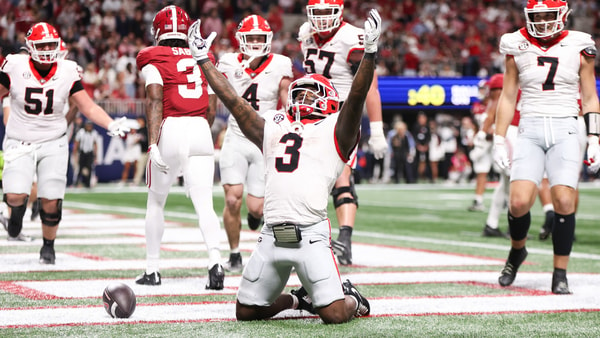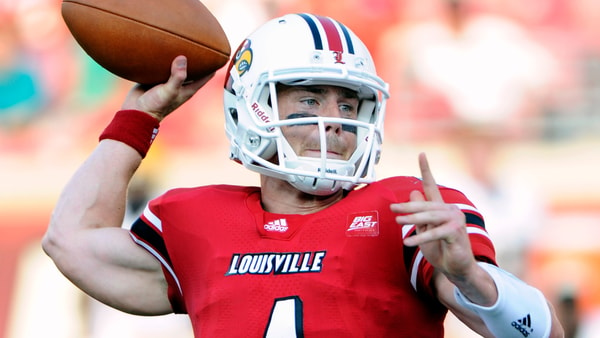
American Sniper is yet another biopic in the year for biopics with The Theory of Everything, Selma, and The Imitation Game all scoring Best Picture noms (don't forget about Wild, now.)
Wait. No, it's not. This film
must be differentiated from the rest of the biopics, hell, the rest of the Academy Award nominees for its affect on the zeitgeist--American Sniper has pulled in more dollars, more viewers, than the rest of the Best Picture nominees combined.
While this is a review of a movie for its quality from someone who simply enjoys watching too many,
the nearly $400 million grossed worldwide, over $300 million in North America, has to be included in the discussion of American Sniper's cultural impact and controversy.
Your typical cinephiles rush to Kentucky Theater to see any film that may have a shot at the Academy Awards. How else would we feel superior to our relatives during Christmas conversation? But American Sniper attracted an audience that didn't make it out to see Nebraska last January. It's the highest-grossing American war film of all time (not adjusted for inflation) ahead of Saving Private Ryan, and the second highest-grossing R-rated film behind The Passion of the Christ.
I'd like to stop writing now, please. Because this can only get political now, and most any review of this film can be interpreted as a stance. I am 100% stance-less. Never had a stance on anything, never will.

Now that's out of the way, this film is indicative of the larger political landscape and milieu in which we all find ourselves today. In the Twitter-age, we must be quick to interpret and then condemn ev-ery-thing. You're either for us or you're against us you commie bastard, you racist pig, you _____________.
As intelligent, rational human beings who are
occasionally capable of nuance, I'm here to remind you that the conversation isn't that simple, even when approaching a film directed by Clint Eastwood about the deadliest sniper in US history. Rolling Stone claims American Sniper is
"almost too dumb to criticize" while the New York Post
countered, "After 40 years of Hollywood counterpropaganda telling us war is necessarily corrupting and malign, its ablest practitioners thugs, loons or victims,
American Sniper nobly presents the case for the other side."
The self-righteousness from each is nauseating, no?

So what about the film itself, outside the many, grandiose discussions it has spawned?
It's worth seeing, though not remarkable enough to warrant a Best Picture win.
American Sniper features your classic Clint Eastwood character study of the lonely loner with a cause--think Dirty Harry, and follows him on a rather choppy journey from hunting with his father in rural Texas to Iraq's most dangerous rooftops. Kyle goes from being a cowboy wannabe to an unadulterated patriot following 9/11, enlisting in the US Navy and proceeding to become a Navy Seal marksman. How did he get from point cowboy to point Legend? The storyline is at times, a bit difficult to follow in these aspects, perhaps lacking in some critical details one may find in Kyle's text. For example, if each of Kyle's tours in Iraq had not been labeled, I would have been unaware that this wasn't the same day in Baghdad as before!
The film is at its best when its lone wolf star is shown being just that--alone, whether physically or psychologically, Kyle is isolated in every setting. Kyle's reputation as "Legend" and the deadliest sniper in the US military separates him from even his fellow Seals and Marines with which we expect he may share a tight bond. And of course, as in all war movies, his home life is strained by his years away, and by his inability to adjust to civilian life.
Kyle's wife, played by Sienna Miller, along with his children, lack any nuance as Eastwood doesn't make much of an effort to explore her, or any of the supporting characters. The dialogue between Chris and wife, Taya, feels almost as uncomfortable as Clooney and Bullock's in Gravity.
This film is truly all about Chris, and a Disney villain, an Iraqi sniper known colloquially as "The Butcher." Creating a singular enemy for Kyle and the audience to loathe may streamline an otherwise messy plot to capture on film, but it does us all a great disservice in making the cartoonish good vs. evil debate about this film, and this man, even more pronounced.
From my point of view, it does seem that the real Chris Kyle was as staunch a defender of his profession, his war, and his United States as Eastwood portrays him; his only true moments of crisis and indecision take place when the life of a child is involved.
Kyle's true struggles in relating to other Seals and his own family are almost Alan Turing-like in that he is so self assured in one arena, yet so lost in all others. He is a "genius" who does not struggle with the ethics of war and the lives he's taken, but only with the American lives Kyle feels he should have saved. In this regard, Eastwood does capture the singular nature of the kind of man who could, almost casually, become the deadliest sniper in American history, while missing out on an opportunity to explore and expose an audience to the contradictory moral ambiguities of the Iraq War (or any war)--ambiguities that should exist for the rest of us.
 American Sniper is yet another biopic in the year for biopics with The Theory of Everything, Selma, and The Imitation Game all scoring Best Picture noms (don't forget about Wild, now.)
Wait. No, it's not. This film must be differentiated from the rest of the biopics, hell, the rest of the Academy Award nominees for its affect on the zeitgeist--American Sniper has pulled in more dollars, more viewers, than the rest of the Best Picture nominees combined.
While this is a review of a movie for its quality from someone who simply enjoys watching too many, the nearly $400 million grossed worldwide, over $300 million in North America, has to be included in the discussion of American Sniper's cultural impact and controversy.
Your typical cinephiles rush to Kentucky Theater to see any film that may have a shot at the Academy Awards. How else would we feel superior to our relatives during Christmas conversation? But American Sniper attracted an audience that didn't make it out to see Nebraska last January. It's the highest-grossing American war film of all time (not adjusted for inflation) ahead of Saving Private Ryan, and the second highest-grossing R-rated film behind The Passion of the Christ.
I'd like to stop writing now, please. Because this can only get political now, and most any review of this film can be interpreted as a stance. I am 100% stance-less. Never had a stance on anything, never will.
American Sniper is yet another biopic in the year for biopics with The Theory of Everything, Selma, and The Imitation Game all scoring Best Picture noms (don't forget about Wild, now.)
Wait. No, it's not. This film must be differentiated from the rest of the biopics, hell, the rest of the Academy Award nominees for its affect on the zeitgeist--American Sniper has pulled in more dollars, more viewers, than the rest of the Best Picture nominees combined.
While this is a review of a movie for its quality from someone who simply enjoys watching too many, the nearly $400 million grossed worldwide, over $300 million in North America, has to be included in the discussion of American Sniper's cultural impact and controversy.
Your typical cinephiles rush to Kentucky Theater to see any film that may have a shot at the Academy Awards. How else would we feel superior to our relatives during Christmas conversation? But American Sniper attracted an audience that didn't make it out to see Nebraska last January. It's the highest-grossing American war film of all time (not adjusted for inflation) ahead of Saving Private Ryan, and the second highest-grossing R-rated film behind The Passion of the Christ.
I'd like to stop writing now, please. Because this can only get political now, and most any review of this film can be interpreted as a stance. I am 100% stance-less. Never had a stance on anything, never will.
 Now that's out of the way, this film is indicative of the larger political landscape and milieu in which we all find ourselves today. In the Twitter-age, we must be quick to interpret and then condemn ev-ery-thing. You're either for us or you're against us you commie bastard, you racist pig, you _____________.
As intelligent, rational human beings who are occasionally capable of nuance, I'm here to remind you that the conversation isn't that simple, even when approaching a film directed by Clint Eastwood about the deadliest sniper in US history. Rolling Stone claims American Sniper is "almost too dumb to criticize" while the New York Post countered, "After 40 years of Hollywood counterpropaganda telling us war is necessarily corrupting and malign, its ablest practitioners thugs, loons or victims, American Sniper nobly presents the case for the other side."
The self-righteousness from each is nauseating, no?
Now that's out of the way, this film is indicative of the larger political landscape and milieu in which we all find ourselves today. In the Twitter-age, we must be quick to interpret and then condemn ev-ery-thing. You're either for us or you're against us you commie bastard, you racist pig, you _____________.
As intelligent, rational human beings who are occasionally capable of nuance, I'm here to remind you that the conversation isn't that simple, even when approaching a film directed by Clint Eastwood about the deadliest sniper in US history. Rolling Stone claims American Sniper is "almost too dumb to criticize" while the New York Post countered, "After 40 years of Hollywood counterpropaganda telling us war is necessarily corrupting and malign, its ablest practitioners thugs, loons or victims, American Sniper nobly presents the case for the other side."
The self-righteousness from each is nauseating, no?
 So what about the film itself, outside the many, grandiose discussions it has spawned?
It's worth seeing, though not remarkable enough to warrant a Best Picture win.
American Sniper features your classic Clint Eastwood character study of the lonely loner with a cause--think Dirty Harry, and follows him on a rather choppy journey from hunting with his father in rural Texas to Iraq's most dangerous rooftops. Kyle goes from being a cowboy wannabe to an unadulterated patriot following 9/11, enlisting in the US Navy and proceeding to become a Navy Seal marksman. How did he get from point cowboy to point Legend? The storyline is at times, a bit difficult to follow in these aspects, perhaps lacking in some critical details one may find in Kyle's text. For example, if each of Kyle's tours in Iraq had not been labeled, I would have been unaware that this wasn't the same day in Baghdad as before!
The film is at its best when its lone wolf star is shown being just that--alone, whether physically or psychologically, Kyle is isolated in every setting. Kyle's reputation as "Legend" and the deadliest sniper in the US military separates him from even his fellow Seals and Marines with which we expect he may share a tight bond. And of course, as in all war movies, his home life is strained by his years away, and by his inability to adjust to civilian life.
Kyle's wife, played by Sienna Miller, along with his children, lack any nuance as Eastwood doesn't make much of an effort to explore her, or any of the supporting characters. The dialogue between Chris and wife, Taya, feels almost as uncomfortable as Clooney and Bullock's in Gravity.
This film is truly all about Chris, and a Disney villain, an Iraqi sniper known colloquially as "The Butcher." Creating a singular enemy for Kyle and the audience to loathe may streamline an otherwise messy plot to capture on film, but it does us all a great disservice in making the cartoonish good vs. evil debate about this film, and this man, even more pronounced.
From my point of view, it does seem that the real Chris Kyle was as staunch a defender of his profession, his war, and his United States as Eastwood portrays him; his only true moments of crisis and indecision take place when the life of a child is involved.
Kyle's true struggles in relating to other Seals and his own family are almost Alan Turing-like in that he is so self assured in one arena, yet so lost in all others. He is a "genius" who does not struggle with the ethics of war and the lives he's taken, but only with the American lives Kyle feels he should have saved. In this regard, Eastwood does capture the singular nature of the kind of man who could, almost casually, become the deadliest sniper in American history, while missing out on an opportunity to explore and expose an audience to the contradictory moral ambiguities of the Iraq War (or any war)--ambiguities that should exist for the rest of us.
So what about the film itself, outside the many, grandiose discussions it has spawned?
It's worth seeing, though not remarkable enough to warrant a Best Picture win.
American Sniper features your classic Clint Eastwood character study of the lonely loner with a cause--think Dirty Harry, and follows him on a rather choppy journey from hunting with his father in rural Texas to Iraq's most dangerous rooftops. Kyle goes from being a cowboy wannabe to an unadulterated patriot following 9/11, enlisting in the US Navy and proceeding to become a Navy Seal marksman. How did he get from point cowboy to point Legend? The storyline is at times, a bit difficult to follow in these aspects, perhaps lacking in some critical details one may find in Kyle's text. For example, if each of Kyle's tours in Iraq had not been labeled, I would have been unaware that this wasn't the same day in Baghdad as before!
The film is at its best when its lone wolf star is shown being just that--alone, whether physically or psychologically, Kyle is isolated in every setting. Kyle's reputation as "Legend" and the deadliest sniper in the US military separates him from even his fellow Seals and Marines with which we expect he may share a tight bond. And of course, as in all war movies, his home life is strained by his years away, and by his inability to adjust to civilian life.
Kyle's wife, played by Sienna Miller, along with his children, lack any nuance as Eastwood doesn't make much of an effort to explore her, or any of the supporting characters. The dialogue between Chris and wife, Taya, feels almost as uncomfortable as Clooney and Bullock's in Gravity.
This film is truly all about Chris, and a Disney villain, an Iraqi sniper known colloquially as "The Butcher." Creating a singular enemy for Kyle and the audience to loathe may streamline an otherwise messy plot to capture on film, but it does us all a great disservice in making the cartoonish good vs. evil debate about this film, and this man, even more pronounced.
From my point of view, it does seem that the real Chris Kyle was as staunch a defender of his profession, his war, and his United States as Eastwood portrays him; his only true moments of crisis and indecision take place when the life of a child is involved.
Kyle's true struggles in relating to other Seals and his own family are almost Alan Turing-like in that he is so self assured in one arena, yet so lost in all others. He is a "genius" who does not struggle with the ethics of war and the lives he's taken, but only with the American lives Kyle feels he should have saved. In this regard, Eastwood does capture the singular nature of the kind of man who could, almost casually, become the deadliest sniper in American history, while missing out on an opportunity to explore and expose an audience to the contradictory moral ambiguities of the Iraq War (or any war)--ambiguities that should exist for the rest of us.








Discuss This Article
Comments have moved.
Join the conversation and talk about this article and all things Kentucky Sports in the new KSR Message Board.
KSBoard